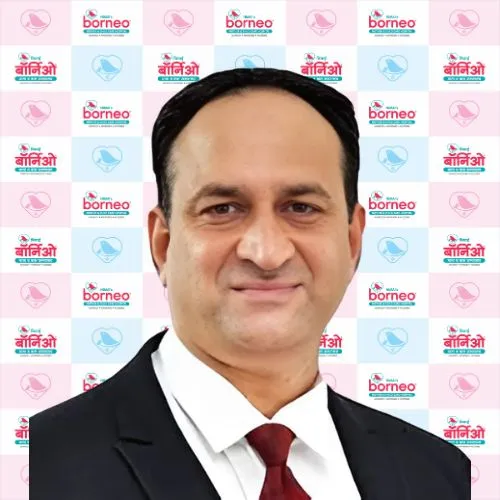Best Mother & Child Care Hospitals in India
+91 7887 878 201
Edit Content
+91 7887 878 201
At Borneo Hospital, we’re committed to providing the best possible care for your precious little one. Our Level III NICU offers a safe and nurturing environment where your baby can heal, grow, and thrive.





















Trustindex verifies that the original source of the review is Google. Borneo hospital sabse ek number hospital Hai kripya karke aap log sab apna ilaaj karwaiye jitna ho sake utna sar ji humse Paisa kam lete Hain aur free mein ilaaj bhi karte HainPosted onTrustindex verifies that the original source of the review is Google. I delivered baby boy needed NICU we got to know about Borneo mother and child care hospital Thane having gov schem MJPJAY through that we got complete free treatment we are thankfully to all staff and drs .....very good hospital giving all high rated services Thank you so much all Borneo hospital team .....highly recommendPosted onTrustindex verifies that the original source of the review is Google. हमारे बच्चे का इलाज बोर्नियो mother and child care hospital main pura free main hua..... Bahot accha hospital hain sab log bahot supportive hain NICU main Dr Pravin Gokhale inhuno bahot acchi tarah se kiya Thank you so much alllPosted onTrustindex verifies that the original source of the review is Google. Thank you Borneo for getting my Daughter and all of us a great and peaceful experience of my daughter's delivery.Posted onTrustindex verifies that the original source of the review is Google. Best Hospital in Thane Very experience Drs and StaffPosted onTrustindex verifies that the original source of the review is Google. Very good experience @Borneo Mother and child care hospital Thane ,feels like home ,Top notch services,All Doctors and Nurses and Administration staff all are really helpfull through out,Giving selfless servicess For NICU treatment they have MJPJAY( Mahatma Jotirao phule jan arogya yojana ) also avail cashless facility..........Highly recommended...........Posted onTrustindex verifies that the original source of the review is Google. I had a C-section delivery at Borneo hospital and couldn’t be happier with the care I received. The doctors were professional, and the nurses were attentive and supportive throughout my recovery. The facility was clean and well-maintained, making my experience smooth and stress-free. Special thanks to all the team of doctors and nurses. Highly recommend for maternity care! Hemlata SarodePosted onTrustindex verifies that the original source of the review is Google. Good and prompt service. Staff is cooperative.Posted onTrustindex verifies that the original source of the review is Google. I am expressing my sincere and overwhelming gratitude for the exceptional care I received at Borneo Hospital during the delivery of my baby last Friday. From the moment I was admitted late that night, until my discharge, the entire experience was remarkably smooth and positive. I cannot adequately express how impressed I was with the entire team. The nurses were angels – consistently attentive, compassionate, and incredibly supportive, not only to me but also to my newborn. They anticipated every need and went above and beyond to ensure my comfort and well-being. The Hospital doctors & staffs including security, were so kind and fantastic. Their expertise and calm demeanor instilled confidence, and they took the time to explain everything clearly, addressing all my concerns with patience and understanding. Even the management team deserves commendation for fostering such a positive and efficient environment. Everyone I encountered, from the support staff to the administrative personnel, was friendly, helpful, and genuinely cared about my experience. Giving birth is a vulnerable and often challenging experience, but the team at Borneo Hospital transformed it into a truly positive and memorable event. I felt completely safe and cared for throughout the entire process. The level of professionalism, compassion, and dedication displayed by every member of the staff was truly extraordinary. I wholeheartedly recommend Borneo Hospital to any expectant parent. Thank you from the bottom of my heart for the wonderful care you provided. You helped bring my little one into the world in the most beautiful and supportive way. Thanks, Dharsheni Mohan Kumar Ravi & FamilyVerified by TrustindexTrustindex verified badge is the Universal Symbol of Trust. Only the greatest companies can get the verified badge who has a review score above 4.5, based on customer reviews over the past 12 months. Read more

We understand that having a premature baby can be an emotional rollercoaster. At Borneo Hospital, we’re committed to providing the most advanced and compassionate care for your little one. If your baby needs specialised respiratory support, our Level III NICU is equipped with state-of-the-art high-frequency ventilators, offering gentle and effective breathing assistance tailored to their delicate needs.
High-frequency ventilators are specialised breathing machines designed to deliver small, rapid breaths to premature or critically ill babies. Unlike conventional ventilators, which deliver larger breaths at a slower rate, high-frequency ventilators provide a gentler form of ventilation that’s less likely to damage delicate lung tissue.
Our highly trained and experienced neonatologists are experts in managing complex respiratory conditions in newborns.
We use the latest high-frequency ventilators and monitoring systems to provide the most advanced care for your baby.
We understand the challenges of having a baby in the NICU, and we're here to support you and your family every step of the way.
We encourage you to be actively involved in your baby's care and provide a comfortable and welcoming environment for families.
Demo Description
This will close in 0 seconds